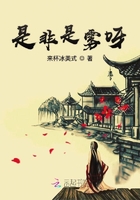Here, then, we reach the ultimate interdict against meddling legislation. Reduced to its lowest terms, every proposal to interfere with citizens' activities further than by enforcing their mutual limitations, is a proposal to improve life by breaking through the fundamental conditions to life. When some are prevented from buying beer that others may be prevented from getting drunk, those who make the law assume that more good than evil will result from interference with the normal relation between conduct and consequences, alike in the few ill-regulated and the many well-regulated. A government which takes fractions of the incomes of multitudinous people, for the purpose of sending to the colonies some who have not prospered here, or for building better industrial dwellings, or for ****** public libraries and public museums, etc., takes for granted that, not only proximately but ultimately, increased general happiness will result from transgressing the essential requirement to general happiness the requirement that each shall enjoy all those means to happiness which his actions, carried on without aggression, have brought him. In other cases we do not thus let the mediate blind us to the remote. When asserting the sacredness of property against private transgressors, we do not ask whether the benefit to a hungry man who takes bread from a baker's shop, is or is not greater than the injury inflicted on the baker: we consider, not the special effects, but the general effects which arise if property is insecure. But when the State exacts further amounts from citizens, or further restrains their liberties, we consider only the direct and proximate effects, and ignore the indirect and distant effects which are caused when these invasions of individual rights are continually multiplied. We do not see that by accumulated small infractions of them, the vital conditions of life, individual and social, come to be so imperfectly fulfilled that the life decays.
Yet the decay thus caused becomes manifest where the policy is pushed to an extreme. Any one who studies, in the writings of MM. Taine and de Tocqueville, the state of things which preceded the French Revolution, will see that the tremendous catastrophe came about from so excessive a regulation of men's actions in all their details, and such an enormous drafting away of the products of their actions to maintain the regulating organization, that life was fast becoming impracticable. The empirical utilitarianism of that day, like the empirical utilitarianism of our day, differed from rational utilitarianism in this, that in each successive case it contemplated only the effects of particular interferences on the actions of particular classes of men, and ignored the effects produced by a multiplicity of such interferences on the lives of men at large. And if we ask what then made, and what now makes, this error possible, we find it to be the political superstition that governmental power is subject to no restraints.
When that "divinity" which "doth hedge a king," and which has left a glamour around the body inheriting his power, has quite died away -- when it begins to be seen clearly that, in a popularly-governed nation, the government is simply a committee of management; it will also be seen that this committee of management has no intrinsic authority. The inevitable conclusion will be that its authority is given by those appointing it; and has just such bounds as they choose to impose. Along with this will go the further conclusion that the laws it passes are not in themselves sacred; but that whatever sacredness they have, it is entirely due to the ethical sanction -- an ethical sanction which, as we find, is derivable from the laws of human life as carried on under social conditions. And there will come the corollary that when they have not this ethical sanction they have no sacredness, and may rightly be challenged.
The function of Liberalism in the past was that of putting a limit to the powers of kings. The function of true Liberalism in the future will be that of putting a limit to the powers of Parliaments.
NOTES:
1. Hobbes, Collected Works, Vol. iii, pp. 112-3.
2. Ibid., p. 159.
3. Ibid., p. 130-1.
4. The Province of Jurisprudence Determined (second edition), p.
241.
5. Fortnightly Review in 1880, vol. xxvii, p. 322.
6. Bentham's Works, vol. 1, p. 301.
7. Prescott, Conquest of Peru, bk. i., ch. i.
8. Harris, Highland of Aethiopia, ii. 94.
9. Burton, Mission to Gelele, King of Dahome, i. p. 226.
10. Bentham's Works, vol. ix, p. 97.
11. Burchell, W.J., Travels in the Interior of Southern Africa, vol. i, p. 544.
12. Arbousset and Daumas, Voyage of Exploration, p. 27.
13. Thompson, G., Travels and Adventures in Southern Africa, vol. ii, p. 30.
14. Thompson, G.A., Alcedo's Geographical and Historical Dictionary of America, vol. i, p. 405.
15. Mitchell, Alex., Siberian Overland Route, p. 248.
16. Brooke, C., Ten Years in Sardwak, vol. i, p. 129.
17. Ellis, History of Madagascar, vol. i, 377.
18. Raffles, Sir T.S., History of Java, vol. i, 274.
19. Marsden, W., History of Sumatra, p. 217.
20. Beecham, J., Ashante and the Gold Coast, p. 90.
21. Schoolcraft, H.R., Expedition to the Sources of the Mississippi River, v., 177.
22. Earl's Kolff's Voyage of the Domga, p. 161.
23. "The Methods of Jurisprudence: an Introductory Lecture at University College, London," October 31, 1882.
24. Tennant, Ceylon: an Account of the Island, etc., ii, 440.
25. Bonwick, J., Daily Life and the Origin of the Tasmanians, 83.
26. Polynesia, p. 86.
27. Voyages of the Adventure and Beagle, 3 vols.
28. Wallace, A.R., Travels on Amazon and Rio Negro, p. 499.
29. Schoolcraft, Expedition to the Source of the Mississippi, v., 177.
30. B.F. Hartshorne, Fortnightly Review, March, 1876. See also H.C. Sirr, Ceylon and the Ceyonese, ii. 219.
31. Address of C.B. Vignoles, Esq., F.R.S., on his Election as President of the Institution of Civil Engineers, Session, 1869-70, p. 53.
32. Data of Ethics, section 21. See also sections 56-62.















